-
 Thanh toán đa dạng, linh hoạtChuyển khoản ngân hàng, thanh toán tại nhà...
Thanh toán đa dạng, linh hoạtChuyển khoản ngân hàng, thanh toán tại nhà... -
 Miễn Phí vận chuyển 53 tỉnh thànhMiễn phí vận chuyển đối với đơn hàng trên 1 triệu
Miễn Phí vận chuyển 53 tỉnh thànhMiễn phí vận chuyển đối với đơn hàng trên 1 triệu -
 Yên Tâm mua sắmHoàn tiền trong vòng 7 ngày...
Yên Tâm mua sắmHoàn tiền trong vòng 7 ngày...

- Publisher:Graywolf Press; Reprint edition (December 4, 2018)
- Language:English
- Paperback:360 pages
- ISBN-10:1644450003
- ISBN-13:978-1644450000
- Item Weight:1 pounds
- Dimensions:5.56 x 0.99 x 8.28 inches
- Best Sellers Rank:#52,330 in Books (See Top 100 in Books) #1,132 in Coming of Age Fiction (Books) #4,104 in Reference (Books) #4,352 in Literary Fiction (Books)
- Customer Reviews:3.8 out of 5 stars 8,318Reviews
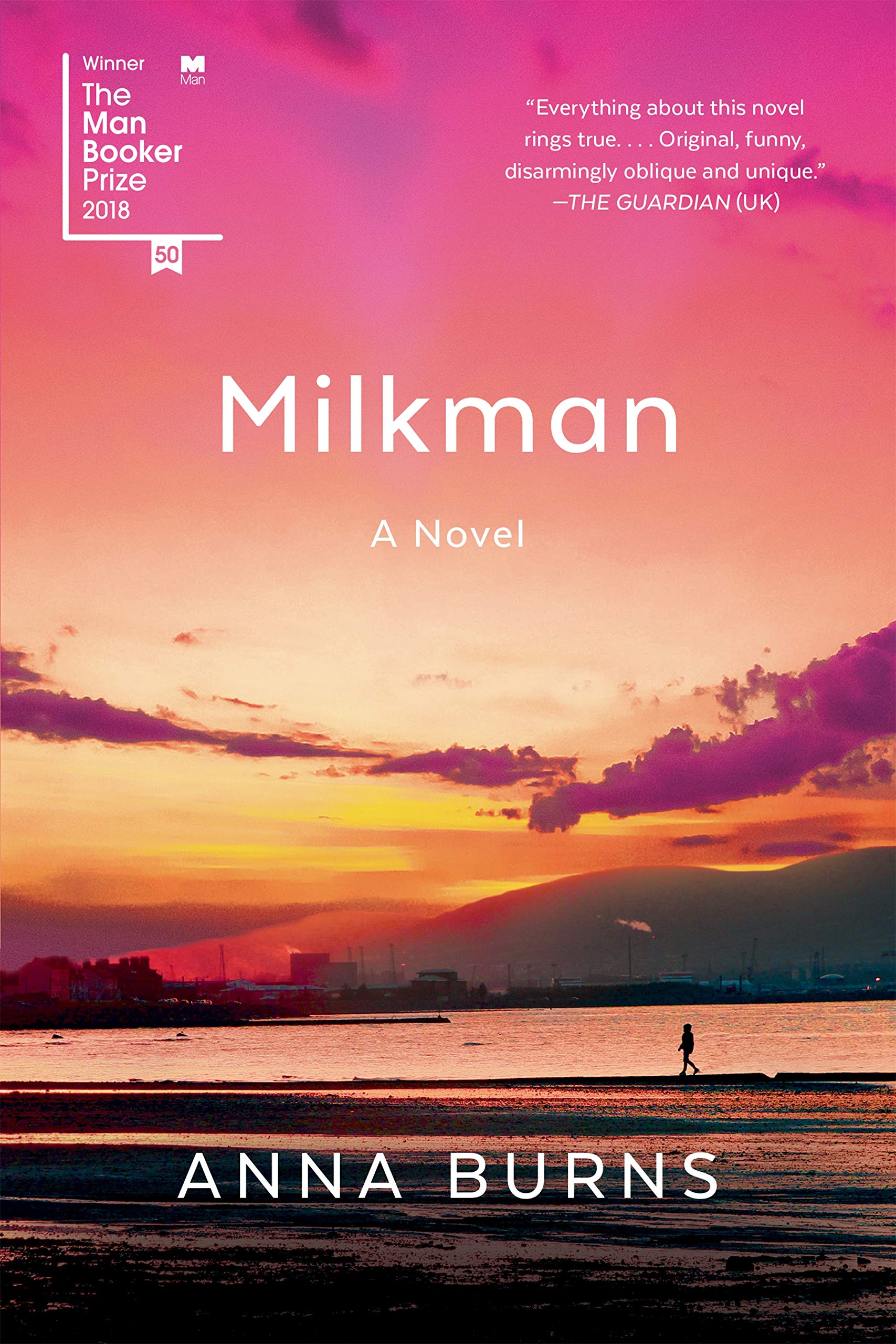
Mô tả sản phẩm
Amazon.com Review
An Amazon Best Book of December 2018: No one in Milkman, winner of the 2018 Man Booker Prize, has a name. The place isn’t named either, although it appears to be 1970s Belfast, the city where Anna Burns grew up. There are very few paragraphs in this stream-of-consciousness novel that is essentially about borders—the borders we try to maintain between ourselves and others, borders between different families, between cities, between countries, belief systems, even with time itself. The story revolves around “middle sister,” who keeps to herself and only likes to read old books because she’s not particularly a fan of the 20th Century. When a local man with a dangerous reputation, a “paramililtary,” takes an unwelcome interest in her, she is unable to repel him and seems incapable of breaking the chain of gossip and innuendo that surrounds her as a result. The issues in Milkman seem very relevant to today--#MeToo, political Manichaeism, gossip and opinion presented as fact—but this is a modernist novel and should be viewed through that prism first. It won’t be every reader’s cup of tea. It’s a rare vintage from an island that has no name. –Chris Schluep, Amazon Book Review
Product Description
Winner of the Man Booker Prize
“Everything about this novel rings true. . . . Original, funny, disarmingly oblique and unique.”―The Guardian
In an unnamed city, middle sister stands out for the wrong reasons. She reads while walking, for one. And she has been taking French night classes downtown. So when a local paramilitary known as the milkman begins pursuing her, she suddenly becomes “interesting,” the last thing she ever wanted to be. Despite middle sister’s attempts to avoid him―and to keep her mother from finding out about her maybe-boyfriend―rumors spread and the threat of violence lingers. Milkman is a story of the way inaction can have enormous repercussions, in a time when the wrong flag, wrong religion, or even a sunset can be subversive. Told with ferocious energy and sly, wicked humor, Milkman establishes Anna Burns as one of the most consequential voices of our day.
Review
“[Milkman] seeth[es] with black humor and adolescent anger at the adult world and its brutal absurdities. . . . For a novel about life under multifarious forms of totalitarian control―political, gendered, sectarian, communal―Milkman can be charmingly wry.”―The New Yorker
“Brutally intelligent. . . . At its core, Milkman is [a] wildly good and true novel of how living in fear limits people.”―NPR.org
“Milkman vibrates with the anxieties of our own era, from terrorism to sexual harassment to the blinding divisions that make reconciliation feel impossible. . . . It’s as though the intense pressure of this place has compressed the elements of comedy and horror to produce some new alloy.”―The Washington Post
“Milkman is a strange animal; it asks a lot, but gives something back, too: the electric jolt of a voice that feels utterly, sensationally new.”―Entertainment Weekly (Grade: A–)
“[Burns’] style powerfully evokes the narrator’s sense of emotional entrapment. . . . Milkman makes a passionate claim for freethinking in a place where monochromatic, us-versus-them ideology prevails.”―USA Today
“Milkman is a deft and triumphant work of considerable intelligence and importance. . . . It is a deeply feminist work, a compelling and significant look at how the regular life of a young woman is intimately used for personal and political gain. . . . Middle Sister is a force. She is a modern heroine.”―Los Angeles Times
“Few works of fiction see as clearly as this one how violence deforms social networks, enhancing, people’s worst instincts. . . . This book is also bursting with energy, with tiny apertures of kindness, and a youthful kind of joy. . . . To plunge headlong into this voice now feels like a necessary reminder that one of the most complex and difficult emotions to put in a novel of darkness is joy. On that, too, perhaps especially so, Milkman is a triumph of resistance.”―The Boston Globe
“Milkman is a richly complex portrayal of a besieged community and its traumatized citizens, of lives lived within many concentric circles of oppression. . . . Among Burns’ singular strengths as a writer is her ability to address the topics of trauma and tyranny with a playfulness that somehow never diminishes the sense of her absolute seriousness. . . . There is a pulsating menace at the heart of the book, of which the title character is an uncannily indeterminate avatar, but also a deep sadness at the human cost of conflict. . . . For all the darkness of the world it illuminates, Milkman is as strange and variegated and brilliant as a northern sunset. You just have to turn your face toward it, and give it your full attention.”―Slate
“This is a powerful, funny and sometimes immensely beautiful novel, with a female lead whose life is a low-key renunciation of the violence that shook her city for a generation.”―Star Tribune (Minneapolis)
“At once intimate and universal, historical and fabulistic and timely, unconventional and almost sentimentally hopeful.”―Vulture
“Milkman is an explosive novel, very much of history but not limited by the names, dates, and places of the official record. It’s a more intimate work than that, and an outstanding contribution to the growing canon of nameless girl heroes.”―The New Republic
“This coming-of-age tale is original, timely, and ultimately rewarding.”―PopMatters
“Milkman vibrates. It is energized with a perspective that immerses the reader in a setting that commands attention.”―Washington Independent Review of Books
“[Milkman] has unmistakable force and charisma.”―WBUR “The ARTery”
“Timely and provocative; not to miss.”―Orange County Register
“Imaginative, feminist, and genre-defying. . . . Burns has conjured an extraordinary world.”―The National Book Review
“With an immense rush of dazzling language, Burns submerges readers beneath the tensions of life in a police state. . . . A deeply stirring, unforgettable novel that feels like a once-in-a-generation event.”―Kirkus Reviews, starred review
“Acute, chilling, and often wry. . . . The narrator of this claustrophobic yet strangely buoyant tale undergoes an unsentimental education in sexual politics. This is an unforgettable novel.”―Publishers Weekly, starred review
“Milkman is a uniquely meandering and mesmerizing, wonderful and enigmatic work about borders and barriers, both physical and spiritual, and the cost of survival.”―Booklist, starred review
“Using stream of consciousness and few if any personal names, Burns creates a musical and lyrical tour de force.”―Library Journal, starred review
“Eccentric and oddly beguiling. . . . What makes it memorable is the funny, alienated, common-sensical voice of middle sister, who refuses to join in the madness.”―The Sunday Times (UK)
“Milkman is delivered in a breathless, hectic, glorious torrent. . . . It’s an astute, exquisite account of Northern Ireland’s social landscape. . . . A potent and urgent book, with more than a hint of barely contained fury.”―Irish Independent
“I haven’t stopped talking about Anna Burns’s astonishing Milkman. The voice is dazzling, funny, acute. . . . Like all great writing it invents its own context, becomes its own universe.”―Eoin McNamee, The Irish Times
“From the opening page her words pull us into the daily violence of her world―threats of murder, people killed by state hit squads―while responding to the everyday realities of her life as a young woman.”―Kwame Anthony Appiah, chair of Man Booker Prize judging panel
About the Author
Anna Burns was born in Belfast, Northern Ireland. She is the author of two novels, No Bones and Little Constructions, and of the novella, Mostly Hero. No Bones won the Winifred Holtby Memorial Prize and was shortlisted for the Orange Prize for Fiction. She lives in East Sussex, England.
Excerpt. © Reprinted by permission. All rights reserved.
Milkman
A Novel
By Anna BurnsGraywolf Press
Copyright © 2018 Anna BurnsAll rights reserved.
ISBN: 978-1-64445-000-0
CHAPTER 1
The day Somebody McSomebody put a gun to my breast and called me a cat and threatened to shoot me was the same day the milkman died. He had been shot by one of the state hit squads and I did not care about the shooting of this man. Others did care though, and some were those who, in the parlance, 'knew me to see but not to speak to' and I was being talked about because there was a rumour started by them, or more likely by first brother-in-law, that I had been having an affair with this milkman and that I was eighteen and he was forty-one. I knew his age, not because he got shot and it was given by the media, but because there had been talk before this, for months before the shooting, by these people of the rumour, that forty-one and eighteen was disgusting, that twenty-three years' difference was disgusting, that he was married and not to be fooled by me for there were plenty of quiet, unnoticeable people who took a bit of watching. It had been my fault too, it seemed, this affair with the milkman. But I had not been having an affair with the milkman. I did not like the milkman and had been frightened and confused by his pursuing and attempting an affair with me. I did not like first brother-in-law either. In his compulsions he made things up about other people's sexlives. About my sexlife. When I was younger, when I was twelve, when he appeared on my eldest sister's rebound after her long-term boyfriend got dumped for cheating on her, this new man got her pregnant and they got married right away. He made lewd remarks about me to me from the first moment he met me – about my quainte, my tail, my contry, my box, my jar, my contrariness, my monosyllable – and he used words, words sexual, I did not understand. He knew I didn't understand them but that I knew enough to grasp they were sexual. That was what gave him pleasure. He was thirty-five. Twelve and thirty-five. That was a twenty-three years' difference too.
So he made his remarks and felt entitled to make his remarks and I did not speak because I did not know how to respond to this person. He never made his comments when my sister was in the room. Always, whenever she'd leave the room, it was a switch turned on inside him. On the plus side, I wasn't physically frightened of him. In those days, in that place, violence was everybody's main gauge for judging those around them and I could see at once he didn't have it, that he didn't come from that perspective. All the same, his predatory nature pushed me into frozenness every time. So he was a piece of dirt and she was in a bad way with being pregnant, with still loving her long-term man and not believing what he'd done to her, disbelieving he wasn't missing her, for he wasn't. He was off now with somebody else. She didn't really see this man here, this older man she'd married but had been too young herself, and too unhappy, and too in love – just not with him – to have taken up with him. I stopped visiting even though she was sad because I could no longer take his words and facial expressions. Six years on, as he tried to work his way through me and my remaining elder sisters, with the three of us – directly, indirectly, politely, fuck off-ly – rejecting him, the milkman, also uninvited but much more frightening, much more dangerous, stepped from out of nowhere onto the scene.
I didn't know whose milkman he was. He wasn't our milkman. I don't think he was anybody's. He didn't take milk orders. There was no milk about him. He didn't ever deliver milk. Also, he didn't drive a milk lorry. Instead he drove cars, different cars, often flash cars, though he himself was not flashy. For all this though, I only noticed him and his cars when he started putting himself in them in front of me. Then there was that van – small, white, nondescript, shapeshifting. From time to time he was seen at the wheel of that van too.
He appeared one day, driving up in one of his cars as I was walking along reading Ivanhoe. Often I would walk along reading books. I didn't see anything wrong with this but it became something else to be added as further proof against me. 'Reading-while-walking' was definitely on the list.
'You're one of the who's-it girls, aren't you? So-and-so was your father, wasn't he? Your brothers, thingy, thingy, thingy and thingy, used to play in the hurley team, didn't they? Hop in. I'll give you a lift.'
This was said casually, the passenger door already opening. I was startled out of my reading. I had not heard this car drive up. Had not seen before either, this man at the wheel of it. He was leaning over, looking out at me, smiling and friendly by way of being obliging. But by now, by age eighteen, 'smiling, friendly and obliging' always had me straight on the alert. It was not the lift itself. People who had cars here often would stop and offer lifts to others going into and out of the area. Cars were not in abundance then and public transport, because of bombscares and hijackings, was intermittently withdrawn. Kerb-crawling too, may have been a term recognised, but it was not recognised as a practice. Certainly I had never come across it. Anyway, I did not want a lift. That was generally speaking. I liked walking – walking and reading, walking and thinking. Also specifically speaking, I did not want to get in the car with this man. I did not know how to say so though, as he wasn't being rude and he knew my family for he'd named the credentials, the male people of my family, and I couldn't be rude because he wasn't being rude. So I hesitated, or froze, which was rude. 'I'm walking,' I said. 'I'm reading,' and I held up the book, as if Ivanhoe should explain the walking, the necessity for walking. 'You can read in the car,' he said, and I don't remember how I responded to that. Eventually he laughed and said, 'No bother. Don't you be worryin'. Enjoy your book there,' and he closed the car door and drove away.
First time that was all that happened – and already a rumour started up. Eldest sister came round to see me because her husband, my now forty-one-year-old brother-in-law, had sent her round to see me. She was to apprise me and to warn me. She said I had been seen talking with this man.
'Fuck off,' I said. 'What's that mean – been seen? Who's been seein' me? Your husband?'
'You'd better listen to me,' she said. But I wouldn't listen – because of him and his double standards, and because of her putting up with them. I didn't know I was blaming her, had been blaming her, for his long-term remarks to me. Didn't know I was blaming her for marrying him when she didn't love him and couldn't possibly respect him, for she must have known, how could she not, all the playing around he got up to himself.
She tried to persist in advising me to behave myself, in warning me that I was doing myself no favours, that of all the men to take up with — But that was enough. I became incensed and cursed some more because she didn't like cursing so that was the only way to get her out of a room. I then shouted out the window after her that if that coward had anything to say to me then he was to come round and say it to me himself. That was a mistake: to have been emotional, to have been seen and heard to be emotional, shouting out the window, over the street, allowing myself to be pulled into the momentum. Usually I managed not to fall into that. But I was angry. I had just so much anger – at her, for being the wee wife, for doing always exactly what he told her to, and at him, for trying to put his own contemptibleness over onto me. Already I could feel my stubbornness, my 'mind your own business' arising. Unfortunately whenever that happened, I'd pretty much turn perverse, refuse to learn from experience and cut off my nose to spite my face. As for the rumour of me and the milkman, I dismissed it without considering it. Intense nosiness about everybody had always existed in the area. Gossip washed in, washed out, came, went, moved on to the next target. So I didn't pay attention to this love affair with the milkman. Then he appeared again – this time on foot as I was running in the parks with the lower and upper waterworks.
I was alone and not reading this time, for I never read while running. And there he was, again out of nowhere, this time falling into step beside me where he'd never been before. Instantly we were running together and it looked as if always we were running together and again I was startled, as I would be startled by every encounter, except the last, I was to have with this man. At first he didn't speak, and I could not speak. Then he did and his talk was mid-conversation as if too, always we were mid-conversation. His words were brief and a little strained because of my pace of running, and it was of my place of work that he spoke. He knew my work – where it was, what I did there, the hours, the days and the twenty-past-eight bus I caught every morning when it wasn't being hijacked to get me into town to it. Also he made the pronouncement that I never caught this bus home. This was true. Every weekday, rain or shine, gunplay or bombs, stand-off or riots, I preferred to walk home reading my latest book. This would be a nineteenth-century book because I did not like twentieth-century books because I did not like the twentieth century. I suppose now, looking back, this milkman knew all of that as well.
So he spoke his words as we were going along one of the sides of the top-end reservoir. There was a smaller reservoir near the child's playground down at the bottom end. He looked ahead, this man, as he spoke to me, not once turning towards me. Throughout this second meeting he didn't ask one question of me. Nor did he seem to want any response. Not that I could have given one. I was still at the part of 'where did he come from?' Also, why was he acting as if he knew me, as if we knew each other, when we did not know each other? Why was he presuming I didn't mind him beside me when I did mind him beside me? Why could I just not stop this running and tell this man to leave me alone? Apart from 'where did he come from?' I didn't have those other thoughts until later, and I don't mean an hour later. I mean twenty years later. At the time, age eighteen, having been brought up in a hair-trigger society where the ground rules were – if no physically violent touch was being laid upon you, and no outright verbal insults were being levelled at you, and no taunting looks in the vicinity either, then nothing was happening, so how could you be under attack from something that wasn't there? At eighteen I had no proper understanding of the ways that constituted encroachment. I had a feeling for them, an intuition, a sense of repugnance for some situations and some people, but I did not know intuition and repugnance counted, did not know I had a right not to like, not to have to put up with, anybody and everybody coming near. Best I could manage in those days was to hope the person concerned would hurry up and say whatever it was he or she thought they were being friendly and obliging by saying, then for them to go away; or else to go away myself, politely and quickly, the very moment I could.
I knew by this second meeting that the milkman was attracted to me, that he was making some move on me. I knew I didn't like him being attracted and that I did not feel the same way towards him myself. But he uttered no direct words by way of forwarding on this attraction. Still too, he asked nothing of me. Nor was he physically touching me. Not once so far in this second meeting had he even looked at me. Plus he was older than me, far older, so could it be, I wondered, that I was getting this wrong, that the situation was not as I imagined? As for the running, we were in a public place. This was two conjoined large parks during the day, a sinister environment at night, though during the day also it was sinister. People didn't like to admit to the day section being sinister because everyone wanted at least one place where they could go. I didn't own this territory so that meant he was allowed to run in it just as much as I was allowed to run in it, just as much as children in the Seventies felt entitled to drink their alcohol in it, just as slightly older children would later in the Eighties feel justified sniffing their glue in it, just as older people again in the Nineties would come to inject themselves with heroin in it, just as at present the state forces were hiding in it to photograph renouncers-of-the-state. They also photographed renouncers' known and unknown associates, which was what then happened just at this point. An audible 'click' sounded as the milkman and I ran by a bush and this was a bush I'd run by lots of times without clicks coming out of it. I knew it had happened this time because of the milkman and his involvement, and by 'involvement' I mean connected, and by 'connected' I mean active rebellion, and by 'active rebellion' I mean state-enemy renouncer owing to the political problems that existed in this place. So now I was to be on file somewhere, in a photograph somewhere, as a once unknown, but now certainly known associate. This milkman himself made no reference to the click even though it was impossible he had not heard it. I dealt with it by picking up my pace to get this run over with, also by pretending I had not heard the click myself.
He slowed the run down though, right down, until we were walking. This was not because he was unfit generally but because he was no runner. He had no interest in running. All that running along the reservoirs where I had not ever seen him run had never been about running. All that running, I knew, was about me. He implied it was because of pacing, that he was slowing the run because of pacing, but I knew pacing and for me, walking during running was not that. I could not say so, however, for I could not be fitter than this man, could not be more knowledgeable about my own regime than this man, because the conditioning of males and females here would never have allowed that. This was the 'I'm male and you're female' territory. This was what you could say if you were a girl to a boy, or a woman to a man, or a girl to a man, and what you were not – least not officially, least not in public, least not often – permitted to say. This was certain girls not being tolerated if it was deemed they did not defer to males, did not acknowledge the superiority of males, might even go so far as almost to contradict males, basically, the female wayward, a species insolent and far too sure of herself. Not all boys and men though, were like that. Some laughed and found the affronted men funny. Those ones I liked – and maybe-boyfriend was one of that lot. He laughed and said, 'You're having me on. Can't be that bad, is it that bad?' when I mentioned boys I knew who loathed each other yet united in rage at the loudness of Barbra Streisand; boys incensed at Sigourney Weaver for killing the creature in that new film when none of the men in that film had been able to kill the creature; boys reacting against Kate Bush for being catlike, cats for being female-like, though I didn't tell about cats being found dead and mutilated up entries to the point where there weren't many of them left in my area anymore. Instead I ended on Freddie Mercury still to be admired just as long as it could be denied he was in any way fruity, which had maybe-boyfriend setting down his coffee pot – only he and his friend, chef, out of everybody I knew had coffee pots – then sitting down himself and laughing all over again.
(Continues...)Excerpted from Milkman by Anna Burns. Copyright © 2018 Anna Burns. Excerpted by permission of Graywolf Press.
All rights reserved. No part of this excerpt may be reproduced or reprinted without permission in writing from the publisher.
Excerpts are provided by Dial-A-Book Inc. solely for the personal use of visitors to this web site.
- Mua astaxanthin uống có tốt không? Mua ở đâu? 29/10/2018
- Saffron (nhụy hoa nghệ tây) uống như thế nào cho hợp lý? 29/09/2018
- Saffron (nghệ tây) làm đẹp như thế nào? 28/09/2018
- Giải đáp những thắc mắc về viên uống sinh lý Fuji Sumo 14/09/2018
- Công dụng tuyệt vời từ tinh chất tỏi với sức khỏe 12/09/2018
- Mua collagen 82X chính hãng ở đâu? 26/07/2018
- NueGlow mua ở đâu giá chính hãng bao nhiêu? 04/07/2018
- Fucoidan Chính hãng Nhật Bản giá bao nhiêu? 18/05/2018
- Top 5 loại thuốc trị sẹo tốt nhất, hiệu quả với cả sẹo lâu năm 20/03/2018
- Footer chi tiết bài viết 09/03/2018
- Mã vạch không thể phân biệt hàng chính hãng hay hàng giả 10/05/2023
- Thuốc trắng da Ivory Caps chính hãng giá bao nhiêu? Mua ở đâu? 08/12/2022
- Nên thoa kem trắng da body vào lúc nào để đạt hiệu quả cao? 07/12/2022
- Tiêm trắng da toàn thân giá bao nhiêu? Có an toàn không? 06/12/2022
- Top 3 kem dưỡng trắng da được ưa chuộng nhất hiện nay 05/12/2022
- Uống vitamin C có trắng da không? Nên uống như thế nào? 03/12/2022
- [email protected]
- Hotline: 0909977247
- Hotline: 0908897041
- 8h - 17h Từ Thứ 2 - Thứ 7
Đăng ký nhận thông tin qua email để nhận được hàng triệu ưu đãi từ Muathuoctot.com
Tạp chí sức khỏe làm đẹp, Kem chống nắng nào tốt nhất hiện nay Thuoc giam can an toan hiện nay, thuoc collagen, thuoc Dong trung ha thao , thuoc giam can LIC, thuoc shark cartilage thuoc collagen youtheory dau ca omega 3 tot nhat, dong trung ha thao aloha cua my, kem tri seo hieu qua, C ollagen shiseido enriched, và collagen shiseido dạng viên , Collagen de happy ngăn chặn quá trình lão hóa, mua hang tren thuoc virility pills vp-rx tri roi loan cuong duong, vitamin e 400, dieu tri bang thuoc fucoidan, kem chống nhăn vùng mắt, dịch vụ giao hang nhanh nội thành, crest 3d white, fine pure collagen, nên mua collagen shiseido ở đâu, làm sáng mắt, dịch vụ cho thue kho lẻ tại tphcm, thực phẩm tăng cường sinh lý nam, thuoc prenatal bổ sung dinh dưỡng, kem đánh răng crest 3d white, hỗ trợ điều trị tim mạch, thuốc trắng da hiệu quả giúp phục hồi da. thuốc mọc tóc biotin





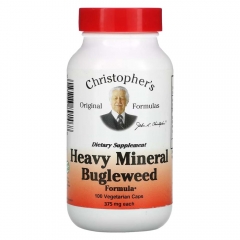

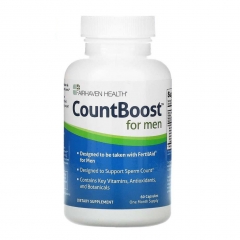

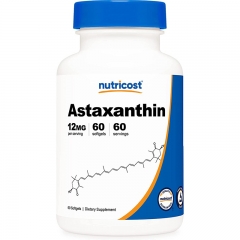
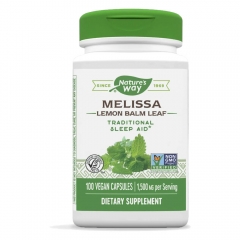
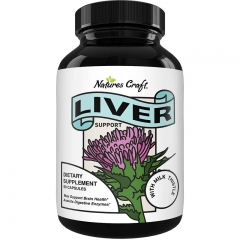
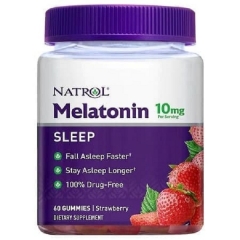

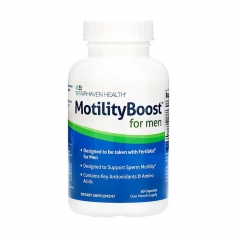









 KHUYẾN MÃI LỚN
KHUYẾN MÃI LỚN Hỗ Trợ Xương Khớp
Hỗ Trợ Xương Khớp Bổ Não & Tăng cường Trí Nhớ
Bổ Não & Tăng cường Trí Nhớ Bổ Sung Collagen & Làm Đẹp
Bổ Sung Collagen & Làm Đẹp Bổ Thận, Mát Gan & Giải Độc
Bổ Thận, Mát Gan & Giải Độc Chăm Sóc Sức khỏe Nam Giới
Chăm Sóc Sức khỏe Nam Giới Chăm Sóc Sức khỏe Nữ Giới
Chăm Sóc Sức khỏe Nữ Giới Chăm sóc Sức khỏe Trẻ Em
Chăm sóc Sức khỏe Trẻ Em Thực Phẩm Giảm Cân, Ăn Kiêng
Thực Phẩm Giảm Cân, Ăn Kiêng Bổ Sung Vitamin & Khoáng Chất
Bổ Sung Vitamin & Khoáng Chất Bổ Tim Mạch, Huyết Áp & Mỡ Máu
Bổ Tim Mạch, Huyết Áp & Mỡ Máu Bổ Mắt & Tăng cường Thị lực
Bổ Mắt & Tăng cường Thị lực Điều Trị Tai Mũi Họng
Điều Trị Tai Mũi Họng Sức Khỏe Hệ Tiêu hóa
Sức Khỏe Hệ Tiêu hóa Chăm Sóc Răng Miệng
Chăm Sóc Răng Miệng Chống Oxy Hóa & Tảo Biển.
Chống Oxy Hóa & Tảo Biển.